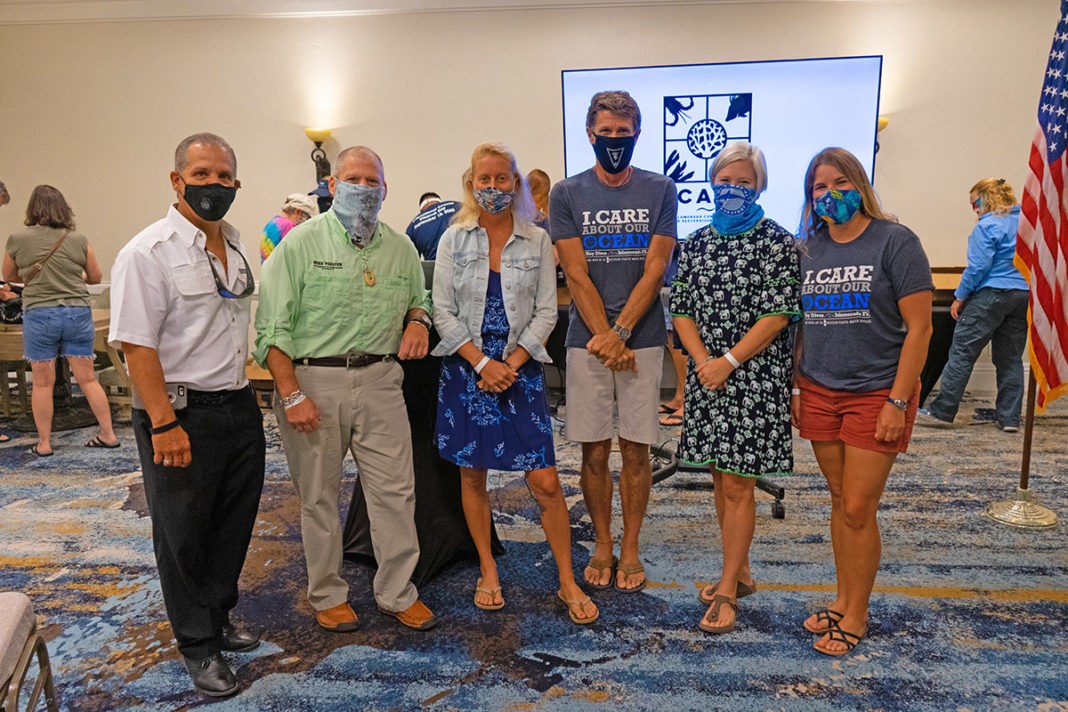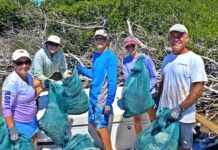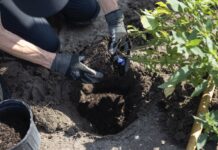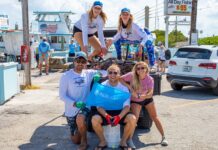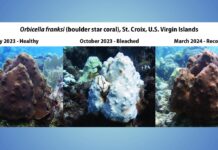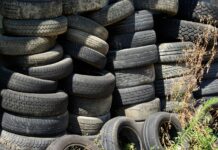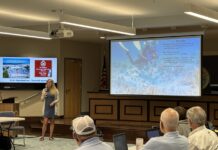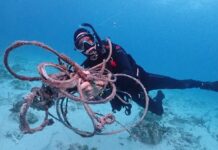In September, Islamorada Conservation and Restoration Education (I.CARE) hosted a clean-up at Cheeca Lodge in Islamorada in honor of National CleanUp Day. The event showcased how the group’s coral restoration efforts, dives against debris and better stewardship of trash on land are all connected to the health of local coral reefs and ocean resources. After presentations, everyone joined in to clean up the shoreline around Cheeca Lodge together.
Islamorada Mayor Mike Forster opened the day by speaking about his passion for the waters in and around the Keys.
“There couldn’t be a better cause right now to bring people together, no matter what side of the aisle you’re on,” Forster said. “It’s about clean water and it’s about sustainability. We’re a water-based economy and that’s how we all survive. Without clean water, we’re not much of an attraction to anybody to keep our economy going.”
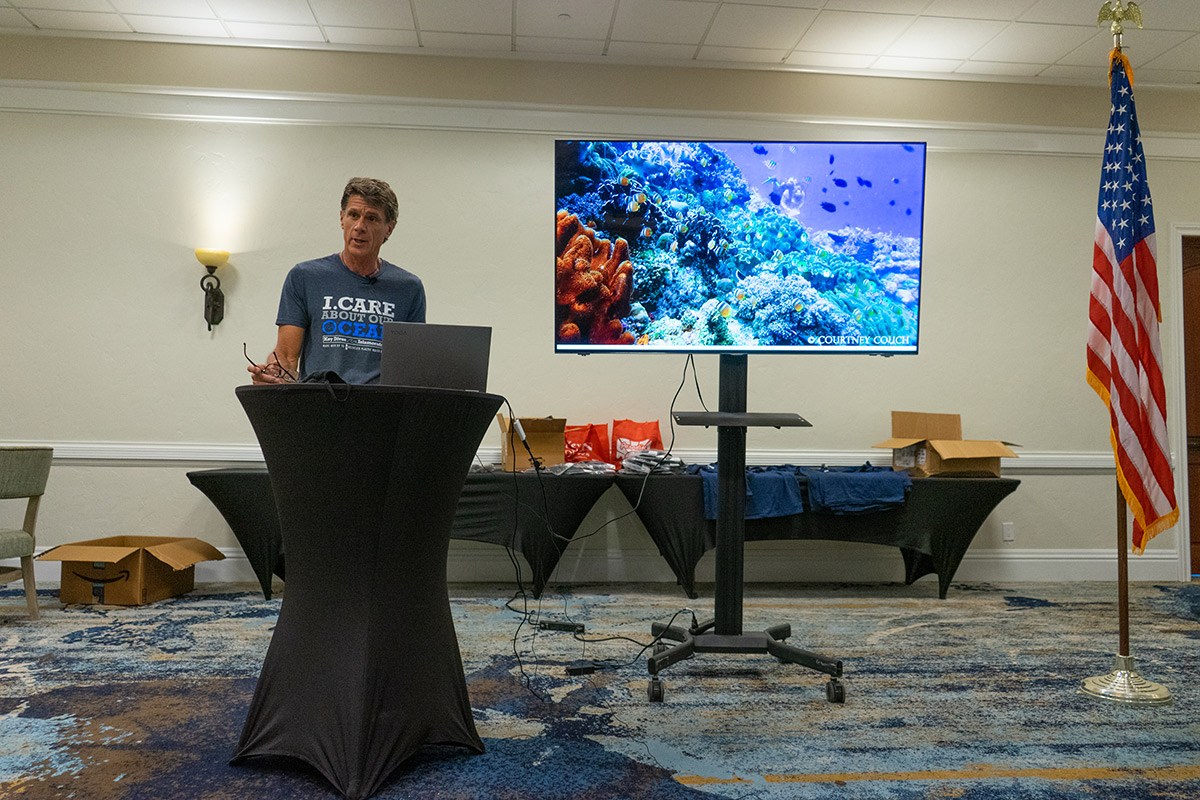
The mayor personally donated to I.CARE to help them get started, as did the Village of Islamorada. He encouraged others to “join the fight” because as the islands rebuild their economy from the coronavirus shutdown, the future of the reefs must be protected.
I.CARE was officially introduced to the Upper Keys community in June of this year. Co-founder Mike Goldberg described his motivation.
“I’ve been diving here for decades, over 30 years, and I decided after seeing the decline in our reefs that it was time to get behind something and try to get a difference. That was pretty much how I.CARE was born,” he said.
Allison Delashmit, of Mote Marine Laboratories, set the scene with images of the same reefs from the 1960s and ’70s — where there was 60% to 70% coral cover — to the present day, where those have been replaced by rubble, and there’s 1% to 2% coral cover.
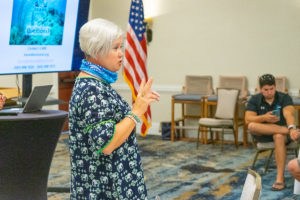
“It’s nothing I can sugarcoat for you. It’s not pretty,” she said.
Delashmit described how the local reefs are now “functionally extinct,” meaning they cannot recover naturally on their own. Instead, “aggressive human intervention” in the forms of science-based reef restoration and massive stewardship of the oceans is necessary to allow the reefs to survive and thrive in the future, she said.
Kylie Smith, Goldberg’s co-founder, showcased how Mote’s restoration efforts can “get a coral restored in two to three years that naturally would take up to 75 years to grow,” adding that the science behind it is “amazing.”
“Science and community are at the core of everything we do,” she emphasized.
Mote’s restored corals also recently spawned, Smith bragged, showing that they are able to reproduce and support the next generation of reefs. Smith and Goldberg are excited to bring Mote’s restoration science techniques and know-how to I.CARE to restore the reefs of Islamorada.
Cortney Benson, the manager of Key Dives, brought it all together by summarizing the last two years of cleanup efforts that she has led. The shop has picked up over 11,500 pounds of marine debris off of Islamorada reefs, and most of it is line, plastic, metal and wood from traps and fishing gear.
“What this means is that we have a local problem,” Benson said. “Locally, we’re causing all this debris through our fishing acts. The good part about that is that we can also solve it locally: we put all that trash out there and we can get it back.”
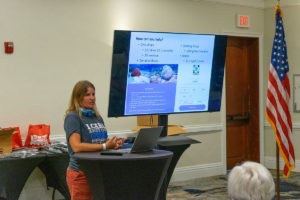
Benson described how newly outplanted corals, like the ones that I.CARE hopes to put into the water soon, need somewhere to settle. Algae from poor water quality and marine debris currently outcompete corals for space on the degraded reefs, and Benson noted how important it is for the corals, the ecosystem the reefs support and the local economy bolstered by both to have healthy, beautiful reefs that are full of corals instead of debris.
Goldberg praised the community partnerships and collaborations that helped to get I.CARE going, including everything from agreements with local dive shops and hotels to donate a per capita fee toward reef restoration for all customers to a partnership with Mote Marine Laboratory to provide all the corals that will be restored to the Islamorada Coffee Roasters, who donate $10 per bag of their I.CARE Blend to the efforts.
“We can’t do this without you,” Goldberg said to the audience, both in person and online. “It’s not something we can overcome without everyone in this room, without the community, and without the businesses’ support. We won’t survive without everyone getting behind this notion that our reefs are in decline, and they need a hand up.”
Benson highlighted also that it will be the community members out there “getting their hands dirty” picking up debris or holding corals before wishing them luck in the future and that customers who live elsewhere will be eager to return to the Keys to check in on their outplanted corals.
“It’s good for our economy, it’s good for our reefs and it’s good for all of us,” she said.
















